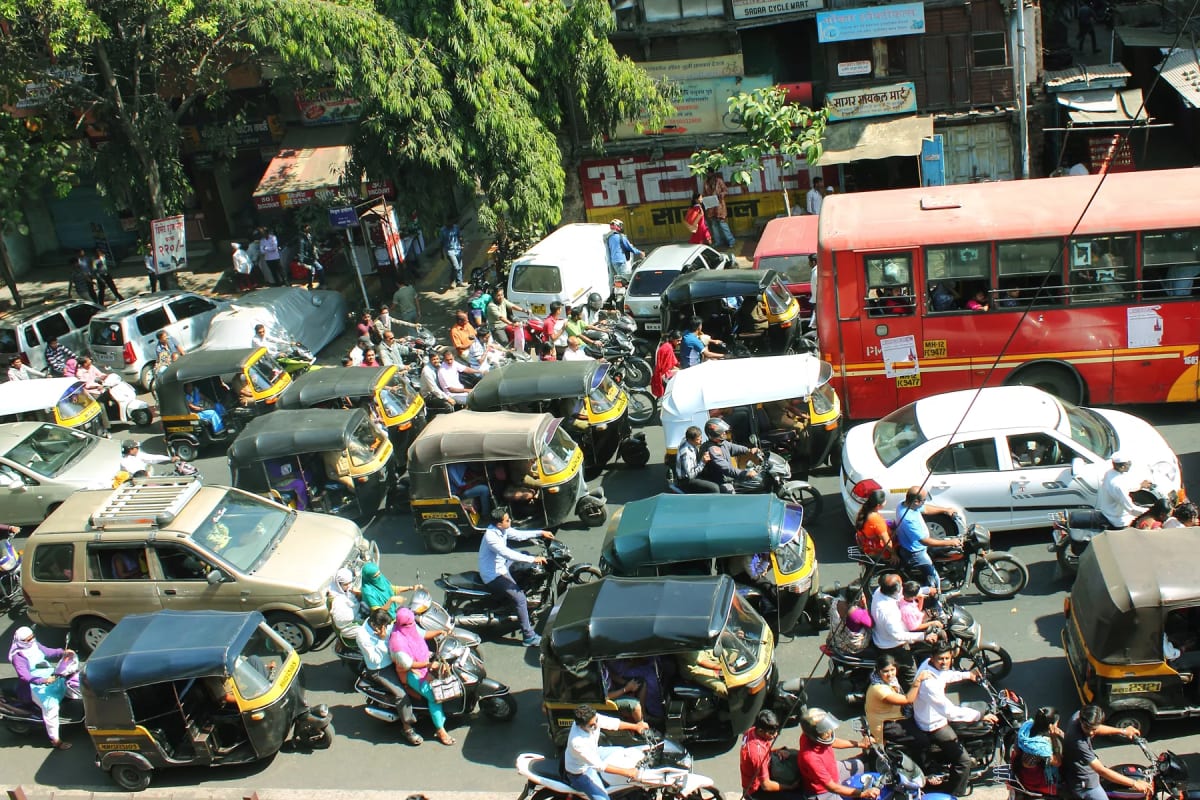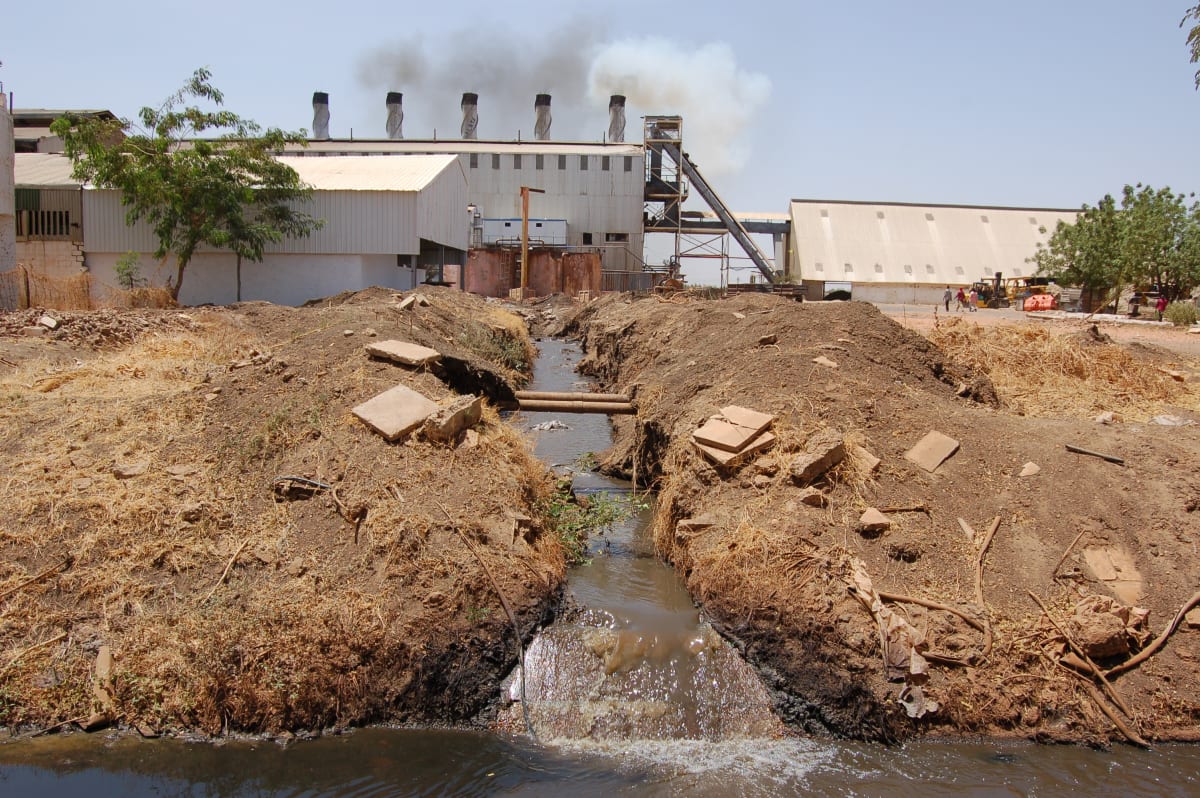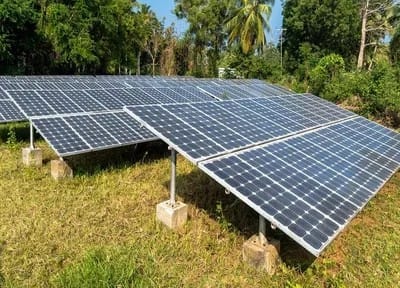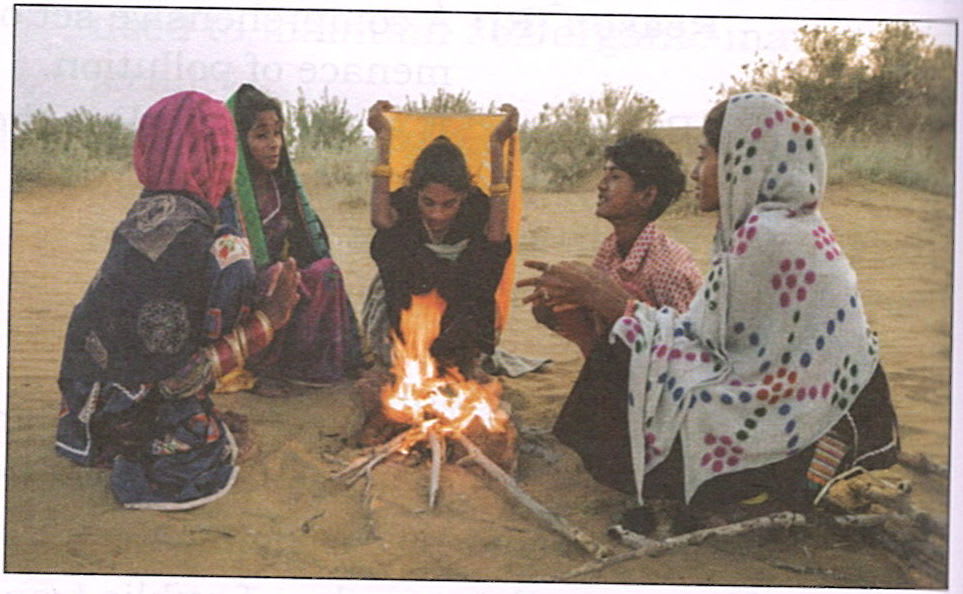Climate change is a result of increasing ............... emissions.
- sulphur dioxide
- carbon dioxide
- oxygen
- hydrocarbons
Answer
carbon dioxide
Vehicles account for most of the:
- carbon monoxide
- nitrogen oxides
- particulates
- carbon dioxide
Answer
carbon monoxide
The sharing of car journeys by persons travelling on the same route to save money and fuel:
- car-sharing
- shared cars
- carpooling
- pooling-car
Answer
carpooling
Which of the following is NOT an advantage of carpooling?
- It helps to save money in buying fuel
- It helps to save money in maintenance cost of cars
- It increases traffic congestion
- It helps to use commuting time in useful pursuits
Answer
It increases traffic congestion
Which amongst the following is NOT an advantage of Public Transport?
- It causes more noise
- It is an eco-friendly transport system
- It reduces fuel consumption
- It helps to save money spent on maintenance of personal vehicles
Answer
It causes more noise
Non-smokers who breathe in the smoke exhaled by the smokers:
- Secondary smokers
- Active smokers
- Passive smokers
- Indirect smokers
Answer
Passive smokers
The buried, combustible deposits of organic materials, formed as a result of heat and pressure in the earth's crust over hundreds of millions of years:
- Fossil
- Fossil Fuel
- Crude
- Combustions
Answer
Fossil Fuel
Coal : 28% :: Natural gas : ................
- 20
- 15
- 30
- 25
Answer
20
The major disadvantage of fossil fuels is:
- Water Pollution
- Radioactive Pollution
- Air Pollution
- Soil Pollution
Answer
Air Pollution
A holistic system of farming, which is primarily aimed at cultivating the land and raising crops in such a way, as to keep the soil alive and in good health in an eco-friendly pollution free environment.
- Eco-friendly farming
- Organic Farming
- Primary farming
- Preventive farming
Answer
Organic Farming
Assertion (A): Pollution affects the air we breathe, the water we drink and the soil in which we grow our crops.
Reason (R): A comprehensive set of preventive measures are required to check the growing menace of pollution.
- Both A and R are true and R is the correct explanation of A.
- Both A and R are true but R does not explain A.
- A is true but R is false.
- A is false but R is true.
Answer
Both A and R are true and R is the correct explanation of A.
Explanation — Pollution affects the air we breathe, the water we drink and the soil in which we grow our crops. Therefore, a comprehensive set of preventive measures are required to check the growing menace of pollution.
State two negative effects of vehicular emissions.
Answer
Two negative effects of vehicular emissions are-
- Global climate change
- Air pollution and its negative health repercussions
Name any two gases emitted by vehicular emissions.
Answer
Two gases emitted by vehicular emissions are-
- Nitrogen oxide
- Carbon monoxide
What is meant by carpooling?
Answer
Carpooling refers to the sharing of car journeys by people travelling on the same route.
Name any three modes of public transport used in India.
Answer
Three modes of public transport used in India are-
- City buses
- Passenger trains
- Metro rail
What is a 'No Smoking Zone'?
Answer
'No Smoking Zone' is a area where people are restricted to smoke.
Under the Prohibition of Smoking in Public Places Rules 2008, smoking in public places was prohibited. A person caught smoking in public places or 'No Smoking Zone' has to pay a fine.
What are Fossil Fuels? Name any two fossil fuels.
Answer
Fossil fuels refer to buried, combustible deposits of organic materials, formed from decayed plants and animals that have been converted to crude oil, coal, and natural gas by exposure to heat and pressure in the earth's crust over hundreds of millions of years.
Two fossil fuels are coal and petroleum.
State why should we use fossil fuels judiciously.
Answer
We should use fossil fuels judiciously because these resources are non-renewable and take millions of years to form. These resources also cause pollution and changes in the climate caused by Global warming.
State any three measures to save energy.
Answer
Three measures to save energy are-
- Use extra blankets and sweaters instead of using room heaters. Likewise, in summer, dress in light, cotton clothes to save on air conditioning costs and energy.
- Use a low flow showerhead, to reduce water consumption and energy usage to heat the water.
- Turn off equipment and lights at night and unplug appliances when they are not in use.
What is Organic Farming?
Answer
Organic farming is a holistic system of farming, which is primarily aimed at cultivating the land and raising crops in such a way, as to keep the soil alive and in good health by use of organic wastes and other biological materials along with the beneficial microbes to release nutrients to crops for increased sustainable production in an eco-friendly pollution free environment.
Explain how are vehicles a source of air pollution.
Answer
Vehicles cause air pollution in the following ways-
- Vehicles account for most of the carbon dioxide, carbon monoxide, and a large share of the hydrocarbons, nitrogen oxides and particulates found in the atmosphere in major urban areas.
- Nitrogen oxide is formed when nitrogen in the fuel or nitrogen of air heats to temperatures above 1200°F in the presence of oxygen. This reaction occurs in most car engines today.
- Nitrogen oxides combine with water leading to a component of atmospheric acidification, specially nitric acid. This leads to acid rain.
- Most big cities of India are affected by air pollution caused by high levels of total suspended particulates, carbon dioxide, sulphur dioxide and nitrogen dioxide. It is exhaust pollution from vehicle emissions.
State any two advantages of carpooling.
Answer
Two advantages of carpooling are-
- It reduces air pollution by reducing the number of vehicles on the road and thereby, cutting down the vehicular emissions.
- It helps to save money in buying fuel and maintenance cost of cars.
Why do we need to have an efficient public transport?
Answer
In recent years, there has been an increasing trend for private vehicles. This has resulted in far more vehicles on the road leading to more vehicle emissions and thus more pollution.
If we have an efficient public transport, then people can be convinced to use the public transport instead of private vehicles. This, in turn, will contribute to a healthier environment by improving air quality and reducing oil consumption.
Who are passive smokers? How does smoking harm passive smokers?
Answer
Passive smokers are those who do not smoke themselves, but unavoidably breath in second-hand tobacco smoke exhaled by the smokers at public places.
Smoking harms passive smokers as they have an increased chance of many health problems such as lung cancer, asthma, bronchitis and sudden infant death syndrome in children.
Name any two legal provisions meant to deter smoking.
Answer
Two legal provisions meant to deter smoking are-
- A mandatory specific statutory health warning on cigarette packs was introduced in 1975.
- Prohibition of Smoking in Public Places Rules 2008, which prohibits smoking in public places and creating 'No Smoking Zone' in public places.
State any two advantages of having a 'No Smoking Zone'.
Answer
Two advantages of having a 'No Smoking Zone' are-
- It reduces the possibility of second-hand tobacco smoke being inhaled by non-smokers.
- It reduces health care costs by reducing the chances of diseases caused by smoking.
Why do we need to reduce our dependency on fossil fuels?
Answer
We need to reduce our dependency on fossil fuels because of the following reasons-
- They are non-renewable and take a long time to form.
- They cause pollution.
Describe the measures an individual can take to reduce consumption of energy and to create a cleaner environment.
Answer
The measures which an individual can take to reduce consumption of energy and to create a cleaner environment are:
- Use extra blankets and sweaters instead of using room heaters. Likewise, in summer, dress in light, cotton clothes to save on air conditioning costs and energy.
- Use a low flow showerhead, to reduce water consumption and energy usage to heat the water.
- Turn off equipment and lights at night and unplug appliances when they are not in use.
- Make sure that the houses are well insulated and if heated or cooled, windows or doors are not left open. Raise shades on winter days, lower them in summer. Seal all leaks. Block windows and doors with weather strip tape and install blinds to reduce outside heat transfer.
- Use products and equipments with Energy Star label. This reduces energy bill by 30% and electric lighting charges by 40% while cutting pollution.
- Replace light fixtures with energy conserving CFL bulbs and tubes which help save 75% of the energy used with incandescent bulbs. CFLs help save money, use less energy, reduce light bulb changes, and lower greenhouse gas emissions. LED lighting is more efficient, durable, versatile and long lasting.
- Check furnaces, air conditioners and heat pump filters regularly. Cleaning the heating, ventilation and air conditioning equipment, make these last longer, avoid costly down time and improve indoor air quality.
- Paint your exterior and interior walls in a light colour so more light is reflected. Paint the edges of the window in white so more light is reflected inside. During the day, open blinds to bring in natural light instead of turning on the lights.
- By double siding on copiers, reusing single sided paper, using electronic mail, an organisation can save a significant amount of energy and natural resources.
- Use public transport or car pool. This helps to save energy costs and extends the life of a vehicle.
Why is 'Organic Farming' so called?
Answer
'Organic Farming' is so called because it is aimed at cultivating the land and raising crops in such a way, as to keep the soil alive and in good health by use of organic wastes and other biological materials along with beneficial microbes to release nutrients to crops for increased sustainable production in an eco-friendly pollution free environment.
It excludes the use of synthetic inputs such as fertilisers, pesticides, hormones and feed additives and rely upon crop rotations, crop residues, animal manures, off farm organic waste and biological system of nutrient mobilization and plant protection.
State any two principles of Organic Farming.
Answer
Two principles of Organic Farming are-
- Organic farming should sustain and enhance the health of soil, plants, animals and humans as one and indivisible.
- Organic farming should be based on living ecological systems and cycles, work with them, emulate them and help sustain them.
What are the main characteristics of Organic Farming?
Answer
The main characteristics of Organic Farming are-
- Protecting the long term fertility of the soil by maintaining organic matter levels, and creating optimised conditions for biological activity within the soil.
- Providing crop nutrients indirectly using relatively insoluble nutrient sources which are made available to the plant by action of soil micro-organisms.
- Maintaining nitrogen self-sufficiency through the use of legumes and biological nitrogen fixation, as well as effective recycling of organic materials including crop residues and livestock manures.
- Preventing weeds, diseases and pests by relying primarily on crop rotations, natural predators, diversity, organic manuring, resistant varieties and limited thermal, biological and chemical intervention.
- Providing attentive care and management of livestock, paying full regard to their evolutionary adaptations, behavioural needs and animal welfare issues with respect to nutrition, housing, health, breeding and rearing.
- Careful attention to the impact of the farming system on the wider environment and the conservation of wildlife and natural habitats.
State why is Organic Farming gaining popularity in recent times.
Answer
Organic farming is gaining popularity in recent times because people have become aware of their benefits. They contain no chemical pesticides and fertilizers and are grown naturally with manure or compost and only natural pesticides and insecticides are used.
Children are more susceptible than adults to diseases caused by chemical pesticide residues in food and so parents prefer to give them organic foods.
Another advantage is that organic foods do not contain growth hormones or antibiotic residues. Animals are often given growth hormones and antibiotics in animal feeds which are directly passed into animal foods like meat, poultry, fish, eggs, and dairy products and from foods to the consumers. In organic farming these practices are banned and animals feed outside in natural surroundings.
Study the pictures given below. State how pollution be reduced.

(i)

(ii)
Answer
(i) The given picture depicts the scene of a Traffic Jam, indicating towards Vehicular Air Pollution. It can be reduced in the following ways:
- Carpooling helps in reducing traffic jams and decreasing fuel consumption, resulting in lesser emissions.
- Promotion of Public Transport — Reduces number of private vehicles on the road.
- Use of CNG and LPG instead of petrol and diesel as they are cleaner fuels compared to the latter.
- Regular vehicle maintenance to ensure emission levels are at acceptable levels.
- Short distances can be covered by walking or by bicycle.
- Use of electric vehicles to cut down exhaust emissions.
(ii) The given picture shows industrial water pollution caused by untreated or poorly treated wastewater being discharged from a factory into a nearby water body. It can be reduced in the following ways:
- Industries must install and properly operate Effluent Treatment Plants (ETPs) to treat wastewater before releasing it into natural water bodies.
- Government authorities must regularly monitor factory emissions and enforce pollution control norms.
- Factories should adopt methods to reuse treated water in their own processes to reduce waste discharge.
- Planting trees and creating vegetation buffers around industrial sites can help absorb pollutants and reduce runoff.
- Use of cleaner, eco-friendly production techniques reduces pollutant generation at the source.
From the pictures given below identify those that reduce energy consumption. Give reasons to support your answer.

(i)

(ii)
Answer
(i) The given picture (i) shows solar panels, and they reduce energy consumption.
Solar panels use renewable solar energy to generate electricity. This reduces dependence on fossil fuels like coal, oil, and gas, which consume non-renewable resources and pollute the environment. Solar energy is clean, sustainable, and reduces both energy consumption and pollution.
(ii) The given picture (ii) shows people burning firewood. No, firewood does not reduce energy consumption, rather it substitutes one form of energy with another.
Firewood is burnt to produce heat, where chemical energy stored in wood is consumed to produce heat and light. Although it doesn't use electricity or fossil fuels directly, it still requires energy input (biomass) and therefore does not contribute to energy conservation.
Preventive measures being taken to check all types of pollution are too slow and too less. What do you think need to be done to check the menace of pollution before it is too late?
Answer
I think the following measures can be taken to check the menace of pollution before it is too late:
- Stronger Policy Implementation — Enforce environmental regulations rigorously and impose stricter penalties for violators.
- Increased Public Awareness — Educate and raise awareness about the consequences of pollution through campaigns and educational programs.
- Transition to Clean Energy — Accelerate the adoption of clean and renewable energy sources, while discouraging fossil fuel use.
- Sustainable Urban Planning — Prioritize efficient public transportation, pedestrian-friendly infrastructure, and green spaces in urban planning.
- International Cooperation — Collaborate globally to address transboundary pollution and share best practices.
- Promote Green Industries — Encourage eco-friendly technologies and practices in industries.
- Research and Innovation — Invest in research for pollution prevention and mitigation.
- Engage Stakeholders — Foster collaboration among industry leaders, civil society, and local communities for innovative solutions and effective implementation.
The daily grind leaves no room to think about the haze and the smog or other types of pollution. In this scenario, how can the preventive measures be implemented to check pollution? Give reasons to support your answer.
Answer
To implement preventive measures amidst a busy daily grind, individuals can:
- Incorporate Small Changes — Start by making small changes in daily habits, such as reducing waste, conserving energy, and using eco-friendly products.
- Time Management — Allocate specific time slots to focus on pollution prevention activities, such as participating in local environmental initiatives or joining clean-up drives.
- Support Environmental Organizations — Contribute to or volunteer with environmental organizations that work towards pollution prevention. This allows individuals to contribute without overwhelming their own schedules.
- Advocate for Change — Engage in conversations about pollution and its impact with friends, family, and colleagues. Encourage collective action and promote awareness within one's social circle.